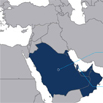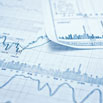News and Press Release
QETF DEBUT IS SEEN ATTRACTING UP TO $5BN INFLOWS FROM GLOBAL INVESTORS
Publisher: Qatar Tirbune
Date : MARCH 6, 2018

Doha yesterday witnessed the debut of the Gulf region’s largest exchange traded fund (QETF) through which its founder Doha Bank is expecting $2bn to $5bn inflows from global investors.
The open-ended fund, with an initial authorised capital of QR150mn raised through private placement, is also eyeing listing elsewhere in the world as part of measures to showcase Qatar’s success story.
The QETF, established by Doha Bank and managed by Amwal, will have among the lowest expense ratios of any Middle East and North Africa equity fund globally and will make annual distributions to unit holders based on income received from the underlying securities.
On Doha Bank ETF Plans, Dr. R. Seetharaman said “Doha Bank has been working closely with the Listing Committee and Qatar Exchange and local regulators in driving the new listing towards growing the investment platform in Qatar via new offerings. In line with this initiative, we are proud to announce that the bank as Founder is in the final phase for filing its application for listing approval for the proposed launch of the QE Index ETF (QETF). The QETF will invest and replicate the Qatar Index largest 20 companies in terms of market capitalization and liquid listings – The crown jewels of Q-Inc. The fund will replicate the index in performance, net of fees. The fees or ‘Total Expense Ratio’ to be 0.50%; one of the lowest in Emerging Markets offerings. The fund will pay an annual dividend, net of fees, similar to the index; which currently carries a yield of 3.80%. The offering will enjoy easy access, as the investor needs only an investor number and broker and the ETF will be easily traded in the secondary market like other current listings. The Fund also has on boarded a dedicated ‘Liquidity Provider’ to ensure secondary market liquidity. The fund enjoys full support from local government and regulators and currently the bank is raising seed capital to be invested along with the bank pre-listing.”
As many as 60,885 QETFs valued at QR5.4bn traded across 186 transactions on the debut day.
“Great thought and effort has gone into the development of an ETF market at QSE and a listing based on our main index was always going to be a proud moment...We’re excited at the new trading opportunities the ETF provides to our investors,” said Rashid Ali al-Mansoori, chief executive of the Qatar Stock Exchange. The Group Securities, as the QETF’s liquidity provider, will support trading by making competitive “two-way” pricing, allowing investors to trade QETF with ease. It will maintain the supply of ETF units and ensure that the price is in line with the value of its underlying index portfolio. Standard Chartered Bank is the custodian and fund administrator.
The debut of QETF, which tracks the 20-stock Qatar Index, comes at a time when global fund houses are increasingly showing interests in the country’s capital markets in view of the macroeconomic potential and despite the economic blockade. “It is a milestone for the Qatari economy. We start with a minimum target of $2bn and we should be able to scale it up to $5bn, going by the intrinsic strength of the domestic economy,” Doha Bank group chief executive Dr R Seetharaman said, adding the total expense ratio would not exceed 0.5% of the average daily net assets of the fund. Highlighting that passive investment strategies are playing a bigger role for institutional investors looking for emerging market exposure as part of their global asset allocation, Sheikha Hanadi Nasser bin Khaled al-Thani, chairperson of Amwal, said Qatar is a part of the emerging MSCI and being looked at as most the promising economies in the region. Stressing that plans are there to list QETF on certain other global bourses as there is a need to promote Qatar and create opportunities for inward investment, Seetharaman said most of the emerging market allocations come from hedge funds, private equity and the QETF listing could be in Tokyo, Shanghai, India, Switzerland, London or Frankfurt. “We have structured this product according to the international standards to satisfy listing in any kind of market anywhere in the world,” according to Sheikha Hanadi. Page 16
View Original Source-
05 February 2017
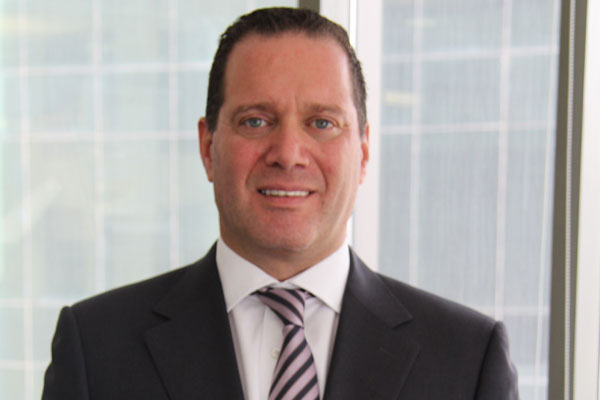 Fahmi Alghussein appointed as new Qatar Chapter Head
Fahmi Alghussein appointed as new Qatar Chapter Head
Read more -
10 October 2016
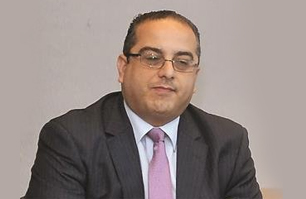 Trump factor to impact GCC market
Trump factor to impact GCC market
Read more -
9 October 2016
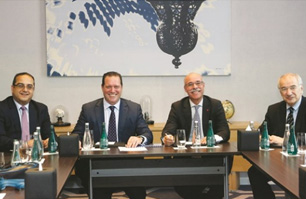 Amwal and Takaud in deal to debut pension products...
Amwal and Takaud in deal to debut pension products...
Read more -
7 November 2016
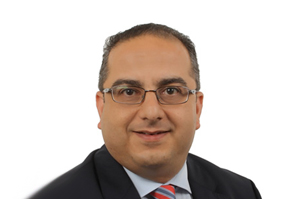 Amwal appoints Talal Samhouri as Head of Asset Management
Amwal appoints Talal Samhouri as Head of Asset Management
Read more -
3 November 2016
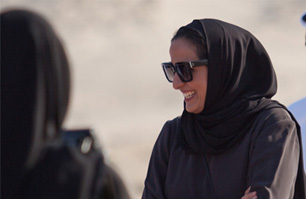 Four Qataris ranked in Middle East magazine’s
Four Qataris ranked in Middle East magazine’s
Read more -
19 October 2016
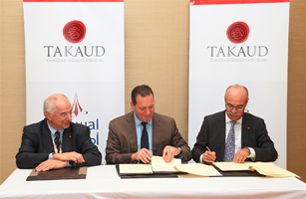 New Takaud And Amwal Partnership Expands
New Takaud And Amwal Partnership Expands
Read more -
01 March 2016
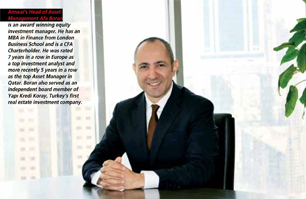 A top down analysis of the real estate market Factors...
A top down analysis of the real estate market Factors...
Read more -
11 November 2015
 Amwal launches GCC fund with German firm
Amwal launches GCC fund with German firm
Read more -
09 March 2015
 Doha Bank plans to launch ETF on QE
Doha Bank plans to launch ETF on QE
Read more






